In the face of mounting environmental challenges, Curaçao, the vibrant island paradise, finds itself at a crossroads. Climate change is causing rising sea levels, stronger storms, and the degradation of its gorgeous coral reefs, to name a few critical challenges. Yet, amidst these trials, Curaçao remains steadfast in its commitment to conservation and sustainability.
From establishing marine protected areas to implementing renewable energy projects, the island is taking decisive action to protect its natural resources. Moreover, Curaçao’s local community is actively engaged, spearheading clean-up drives, reforestation efforts, and educational campaigns.
By fostering international collaborations and promoting sustainable tourism practices, Curaçao aims to create a brighter future where its pristine beauty can be enjoyed by generations to come.
Impact of Climate Change on Curacao
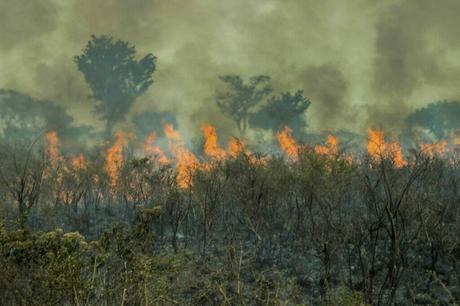
Curaçao’s ecosystems and communities are suffering as a result of the island’s vulnerability to the effects of climate change. The hazard that rising sea levels pose to low-lying coastal regions is the most urgent worry. As sea levels rise, the risk of coastal infrastructure loss, saltwater intrusion into freshwater sources, and erosion rises. These changes have an influence on the livelihoods of those who rely on coastal resources for food and economic security.
Storms are becoming increasingly frequent and strong in Curaçao as a result of climate change. These storms have the potential to have catastrophic impacts such as floods, property destruction, and service disruptions. Infrastructure improvements and adaptation strategies are urgently required to increase resilience and protect locals from the effects of climate change on the island because it is susceptible to such harsh weather.
Furthermore, climate change threatens Curaçao’s colorful coral reefs, which are recognized for their richness and beauty. Warmer ocean temperatures have resulted in coral bleaching events, causing the reefs to lose their vibrant colors and compromising the delicate balance of the marine ecosystem. This diminishes the aesthetic appeal for tourists and jeopardizes the numerous species that rely on coral reefs for shelter and sustenance.
Conservation Efforts
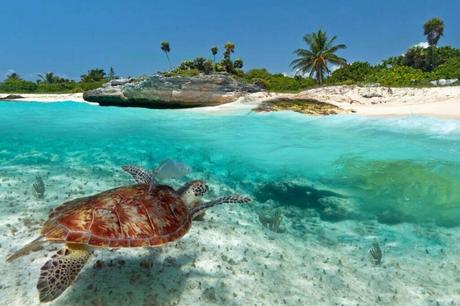
Despite these problems with the environment, Curaçao has shown a strong dedication to conservation efforts meant to save its natural resources.
Marine-protected zones, such as the Curaçao Underwater Park, must be developed to safeguard the island’s aquatic ecosystems. These protected zones provide habitat for a diverse range of marine animals and promote ecologically safe diving and snorkeling practices, ensuring that tourists enjoy Curaçao’s underwater beauty without damaging the ecology.
Additionally, Curaçao has implemented initiatives to protect and restore its endangered species. For instance, the conservation programs for sea turtles have made significant strides in increasing nesting populations by monitoring nesting sites, implementing beach protection measures, and raising awareness about the importance of turtle conservation. Efforts to protect native bird populations, such as the Yellow-shouldered Amazon parrot, have also been successful through habitat restoration and targeted conservation actions.
Policies for Sustainability
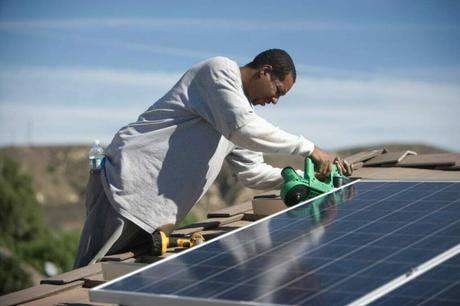
Curaçao has established a number of measures to address environmental issues and encourage sustainable behaviors because it recognizes the need of long-term sustainability. In order to minimize reliance on fossil fuels and carbon emissions, the government has prioritized renewable energy sources. Solar and wind power projects have been initiated, aiming to harness the abundant sunshine and strong coastal winds that the island offers. Curaçao improves its carbon footprint while also improving energy security and reducing reliance on foreign fuels by shifting to sustainable energy.
Efforts to improve waste management systems are also underway in Curaçao. Recycling programs have been set up to encourage people and companies to reduce, reuse, and recycle.
Additionally, initiatives are being established to stop plastic pollution and promote ethical waste disposal in order to preserve the island’s natural ecology and lessen the negative effects of waste on marine ecosystems.
Future Outlook
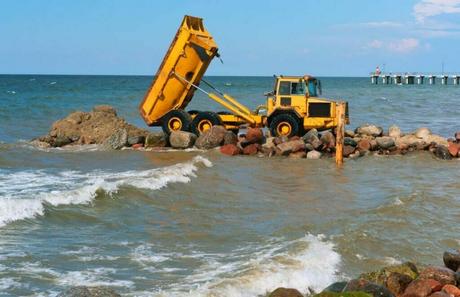
The future outlook for Curaçao’s environmental challenges depends on collective action and continued commitment to sustainability. It is critical for all parties concerned, including the government, area communities, and visitors, to work together to implement and enforce environmental rules. Investing in climate resilience methods like as coastal protection and flexible infrastructure can help secure the long-term viability of coastal municipalities.
Continued research and monitoring of Curaçao’s ecosystems will provide valuable insights for informed decision-making and targeted conservation efforts. This involves ongoing study on the condition of coral reefs, the behavior of sensitive species, and the effects of climate change on the island’s flora and fauna. By staying informed and adaptive, Curaçao can develop effective strategies to address emerging environmental challenges and ensure the preservation of its natural beauty for future generations.
Sustainable Tourism Practices
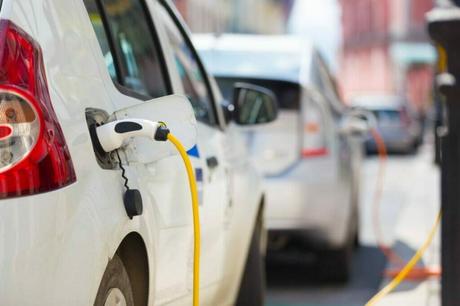
Sustainable tourism practices have gained significant traction in Curaçao, with various initiatives aiming to minimize the ecological footprint of tourism while providing unique and memorable experiences for visitors. Eco-friendly accommodations have emerged as a popular choice, with resorts and hotels implementing energy-efficient technologies, waste reduction measures, and water conservation practices.
Some establishments even integrate renewable energy sources, such as solar panels, to power their operations. These initiatives reduce environmental impact and showcase innovative approaches to sustainable living and tourism.
Moreover, Curaçao is embracing sustainable transportation options to minimize carbon emissions and promote eco-friendly travel. Bike-sharing programs and electric vehicle rentals have been introduced, encouraging tourists and locals alike to explore the island in a more sustainable way. Furthermore, the island’s public transit systems are being updated to make them more accessible and energy-efficient, allowing guests to explore the island with less reliance on private automobiles.
Community-based tourism initiatives are also gaining momentum in Curaçao, fostering meaningful connections between visitors and local communities. These projects help to beautify the area while also offering tourists with a glimpse into local culture.
Visitors can participate in guided tours led by community members, visit local markets, engage in traditional arts and crafts workshops, and even contribute to conservation efforts through volunteering opportunities. Such experiences create a positive impact by directly benefiting the local economy and empowering communities to protect their natural and cultural heritage.
Local Community Engagement
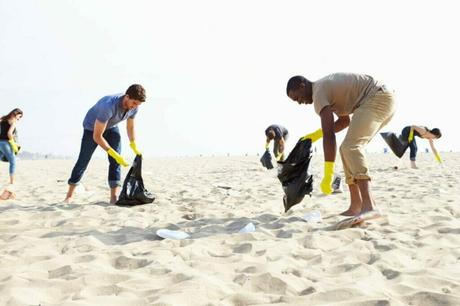
Curaçao’s local community plays a pivotal role in addressing environmental challenges and shaping sustainable practices. Community-led initiatives and grassroots organizations are actively engaged in environmental conservation and sustainability efforts. One notable example is the involvement of local communities in beach clean-ups.
Residents often organize and participate in clean-up activities, together with volunteers, to combat marine litter and increase awareness of the need of good waste management. These initiatives not only improve the beaches’ pristine state and natural beauty, but they also instill in the inhabitants a feeling of community pride and ownership.
In addition to beach clean-ups, local communities are actively involved in reforestation programs. To repair and maintain natural areas like mangroves and forests, they work along with environmental groups and governmental agencies. These strategies aid in the preservation of biodiversity, the growth of carbon sequestration, and the mitigation of climate change.
Furthermore, community-led educational programs strive to educate residents and tourists about sustainable practices, conservation principles, and the need of maintaining Curaçao’s unique natural and cultural heritage.
The engagement of local communities also extends to sustainable agriculture and food production. Community gardens and urban farming projects have gained popularity, promoting organic farming methods and reducing the island’s reliance on imported produce. By strengthening local food systems and supporting sustainable agriculture, Curaçao’s communities contribute to food security, reduce food miles, and foster a deeper connection to the land.
International Collaborations and Partnerships

Curaçao recognizes the importance of international collaborations and partnerships in addressing environmental challenges effectively. The island meets with international organizations, government officials, and non-governmental organizations (NGOs) on a regular basis to promote information exchange, review best practices, and acquire funding for long-term initiatives.
Collaborations with scientific institutions and research organizations enable the island to access the latest findings and expertise in fields such as climate change adaptation, marine conservation, and sustainable development.
Furthermore, Curaçao takes an active role in regional and worldwide activities addressing environmental challenges. The island is part of international networks focused on coral reef conservation, climate change mitigation, and sustainable tourism development. Through these partnerships, Curaçao can leverage collective knowledge and resources to implement effective strategies and advocate for sustainable practices on a broader scale.
Financial support from international entities further strengthens Curaçao’s environmental initiatives. Funding from international development agencies, private foundations, and climate finance mechanisms enables the island to invest in sustainable infrastructure, research programs, and community projects. These partnerships not only provide crucial financial resources but also facilitate the sharing of expertise and experiences, fostering a collaborative approach towards environmental sustainability.
By actively engaging in international collaborations and partnerships, Curaçao demonstrates its commitment to addressing environmental challenges holistically and contributing to global efforts to safeguard our planet’s future.
Curacao Environmental Challenges FAQ
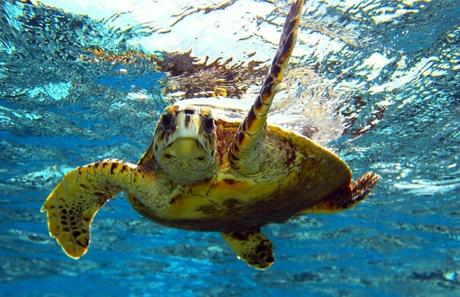
What are the Environmental Issues In Curaçao?
The environmental issues in Curaçao encompass rising sea levels, intensified storms, and the degradation of coral reefs. Climate change is causing these issues, putting low-lying coastal communities, freshwater supplies, and coastal infrastructure in danger. Additionally, the island faces the consequences of coral bleaching events, jeopardizing the marine ecosystem’s delicate balance and its dependent species.
What are the Geographic features of Curaçao?
Curaçao, located in the southern Caribbean Sea, is a Dutch Caribbean island characterized by diverse geographic features. It boasts stunning beaches, vibrant coral reefs, and arid landscapes with rocky hills. Its unique topography encompasses dramatic cliffs, hidden coves, and expansive salt flats, providing a visually captivating environment for visitors to explore.
What is the Main economy of Curaçao?
Curaçao’s major economy is based on international commerce, financial services, and tourism. As a major international financial center, the island attracts offshore banking and investment activities. Furthermore, Curaçao’s strategic location and modern port facilities make it a hub for international trade, including oil transshipment and container handling. The natural splendor, colorful culture, and historical attractions of Curaçao lure many tourists, significantly boosting the island’s economy.

